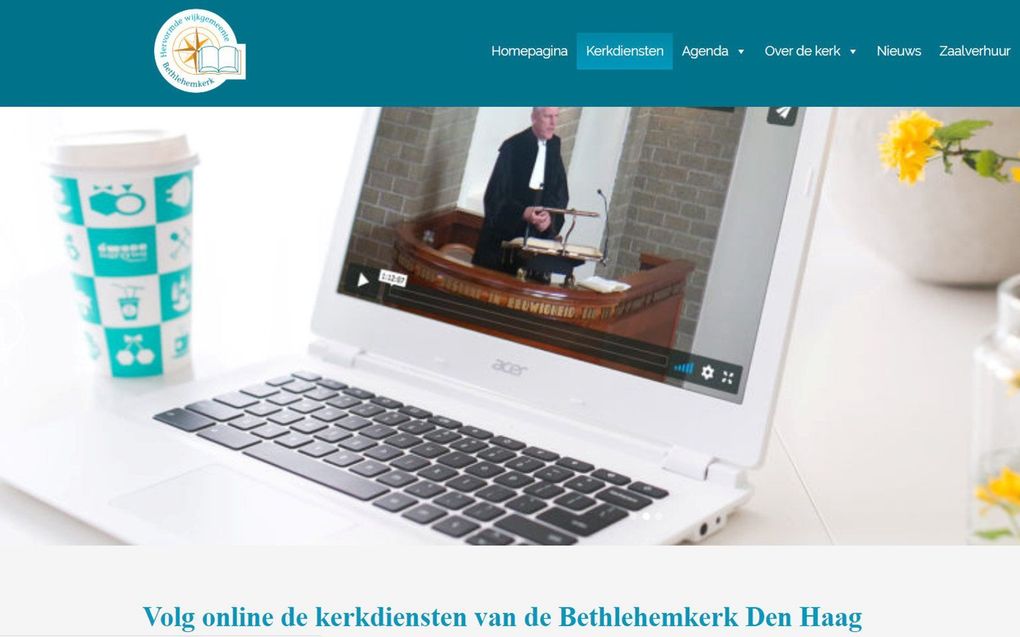Dutch research: Digital church service can remain valuable after Covid

Many churches kept in contact with their people through livestream technology during the corona pandemic. Photo Bethelkerk, The Hague
Christian Life
Many churches use digital facilities during the Covid pandemic. Camera and microphone serve the people at home. Digital church services can also be valuable after the crisis.
That is the conclusion of theology student Mark Joosse and professor of Practical Theology Hans Schaeffer of the Theological University of Kampen (TUK). They researched the formation and experience of church services in the first weeks of the corona crisis. The study aimed to stimulate theological reflection on (digital) community formation in the liturgy so that congregations can further develop their vision of being church in (and after) the pandemic.
The research results have been presented at an online conference.
Joosse investigated the first four church services of twenty Utrecht churches after the first lockdown came into effect in March last year. How did the congregation experience the various (and sometimes radical) new forms of involvement and participation?
Preserving church attendance
In this first phase of the corona crisis, the online services turned out to be experienced globally in two ways, sometimes simultaneously by the same people. On the one hand, there is positive appreciation: digital services provide a form of connection. They are a tool to preserve something of Sunday church attendance. On the other hand, these services are experienced as surrogate services that cannot possibly replace the physical meetings in live church services.
Digital church services can also prove valuable after this pandemic, according to the researchers. The challenge for churches, both during and after the pandemic, is to think through how digital media can serve the liturgical formation of the community with God and with each other. After all, for believers, both offline and online services are only a foreshadowing of the community that will bring God’s new world.
To embody the Christian faith
According to the researchers, when developing a vision of being church in (and after) corona, there must be explicit attention to the experience of the (digital) churchgoer. Secondly, a joint exploration by theologians and church members can reveal one-sidedness in formal theology. In the third place, a congregation-wide conversation about the “corporeality” of the church service provides an opportunity to embody something of what the Christian faith is about.
“After all, when the believer’s experience is taken seriously and is related to the wide palette of opinions and experiences, including those from tradition and the worldwide church, a search for the “catholicity” of the church arises: how can the individual believer identify with the community of believers of all times and places?”
This article was previously published in the Dutch daily Reformatorisch Dagblad on June 16th, 2021.



